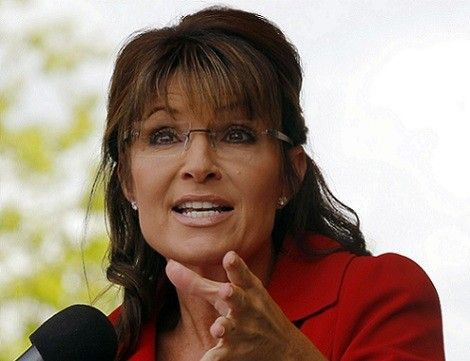Sarah Palin 2012: Out of GOP Race, But What About the Presidential Race?
ANALYSIS

Former Gov. Sarah Palin, R-Alaska, Wednesday ended her month's long kabuki dance with both Republican Party leaders and voters by announcing that she will not seek the GOP nomination for president of the United States. And that ends the Palin 2012 candidacy for U.S. president, issue, correct?
Not quite.
The reason? Careful readers of Palin's statement will note that Palin only declared that she will not seek the Republican Party's nomination for president in 2012: the statement does not say she won't run as a Tea Party candidate or as an independent, or perhaps as the top candidate in a party she may create, call it a Palin Party or a One Nation party.
Further, while there are clear downsides for the Republican Party, and more broadly, for the achievement of conservative interest group goals, from a Palin Tea Party/third party run for the presidency -- it would probably fracture/splinter the conservative vote -- nothing in Palin's current public posture suggests she would not consider a 2012 run, if the right circumstances presented themselves.
What Might Convince Palin to Run in 2012?
And what might be those circumstances?
First, obviously, if the Republican Party's nominee begins to show signs of weakness as measured by a major poll, such as the Gallup Poll. However, currently, that's not the case, as the latest Gallup Poll shows that voters favor a generic GOP candidate over President Barack Obama, 46 percent to 38 percent.
Second, Palin might run even if the Republican Party's nominee was polling well against Obama, if overwhelming evidence demonstrated that she could defeat each soundly in a three-way race.
Admittedly, that second scenario is even less likely than the first, given the risks implied for the conservative cause. Unless polls showed Palin achieving an victory by a wide margin, for example -- Palin 37 percent, to Obama 32 percent, to Republican Nominee 31 percent, she won't run -- the risk of fracturing/splitting the conservative vote is just too big of a risk. Particularly in a tight race, fracturing/splitting the conservative vote would improve Obama's re-election chances, and that's something Palin most certainly does not want to do.
Poker Player Palin Still Has A Hand to Play
Finally, Palin's decision to not seek the GOP nod in 2012 maintains the benefits of her officially not running, but watching perch. It enables Palin to continue to make money from Palin Inc. (speaking fees, other royalties, and related perks) at national stature/presidential candidate-level rates. It maintains her high status in the Tea Party faction. It also maintains her leverage over the 2012 GOP nominee: Palin still has enough support and power to sway delegates to the 2012 GOP nominating convention not determined by the primaries, particularly Tea Party delegates. Finally, Palin can also continue to jockey for a cabinet post, or more, in a potential new Republican administration in 2013.
In short, as was the case prior to Palin's Wednesday announcement that she won't seek the GOP's nomination in 2012, Palin has demonstrated that, in terms of her political power, her best move is to not make one.
© Copyright IBTimes 2025. All rights reserved.





















